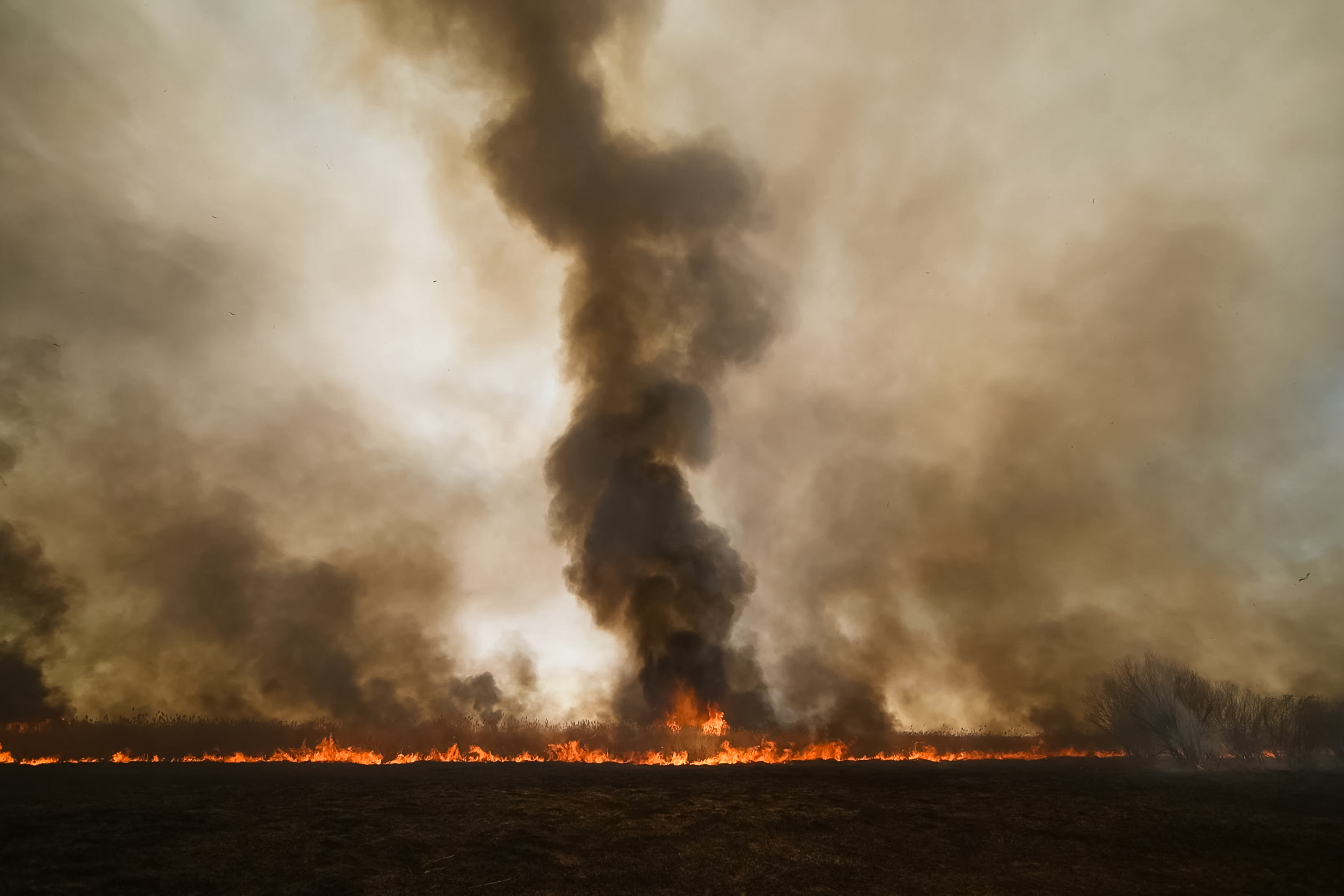“A cultural change”: How PSM are becoming more sustainable
9th May 2023
In a follow-up to PMA’s session on sustainability at PBI in Tokyo last year, plus our sustainability podcast, we highlight recent public media initiatives to be more sustainable.

By Dorcas Mirember-Korsah
The United Nations defines sustainability simply as “meeting the needs of the present without compromising the ability of future generations to meet their own needs.”
The task ahead of Public Service Media (PSM) is to be able to meet the present human need without compromising our future needs.
“We all need to take action to address the coming storm of the climate crisis, both as individuals and as organisations,” said Kristian Porter, the CEO of the Public Media Alliance.
Public service media carry a serious responsibility to cover the climate crisis appropriately, giving due weight to the scale of the story. Getting this balance with Climate change reporting can be difficult. It is a complex and at times depressing subject that may not keep the attention of the audience, barring some spectacular natural disasters. Thus, it continues to slip down the news agenda with other competing and more urgent issues being prioritised.
Read more: How ZDF is on the way to becoming a climate-neutral public media organisation
PSM organisations have an added responsibility to not only proactively inform the public they serve on the climate crisis and solutions that can be taken, but also create and implement innovative solutions to the climate crisis.
This effort is already underway. “Many PSMs have net zero sustainability strategies following the likes of (Greenhouse Gas) GHG protocols,” Hemini Mehta, the EBU’s Technology and Innovations Operations Manager told PMA. “Sustainability is a cultural change taking place throughout the PSMs.”
Many PSM organisations are already doing their bit for the environment by developing partnerships and engaging in collaboration. PSM organisations PSM are talking about the climate crisis in news and documentaries, but also in soap operas, dramas, sports, etc. PSMs are also training their journalists on reporting on climate change.
In this report, we look at a number of initiatives being taken worldwide by public service media to report on the climate crisis, and become more sustainable themselves!
Travelling green
Radio journalists from CBC/Radio-Canada are using e-bikes to aid in news gathering. This two-wheeled initiative started in late 2022 and has been picked up by Radio-Canada reporters, producers and anchors.
The e-bikes have several benefits. They allow for efficient travel around busy cities, and let journalists cover longer distances without tiring the rider. This new way of pedalling stories is in alignment with one of CBC/Radio-Canada’s environmental goals which is the inclusion of active transportation in their company fleet and demonstrates CBC/Radio-Canada’s commitment to environmental sustainability.
The Canadian broadcaster is not the only organisation to turn to bikes as an alternative. The BBC has recently developed the Bike Bureau – an electric cargo bike “kitted out to offer solo-operated and solar-powered TV and radio lives.”
PODCAST: How can public media organisations be more sustainable?
A spotlight on local communities
The NOVA Climate Across America initiative is part of the Science and Society program, sponsored by the Corporation for Public Broadcasting, highlighting community solutions for how climate change affects communities locally. This initiative fulfils a PSM mandate: engaging with communities, educating communities and developing a conversation for creative and innovative ways to solve the climate crisis.
“This initiative provides a timely and unique opportunity to tell stories that shed light on the impacts of climate change on American communities while also showcasing the innovative solutions that individuals and communities are developing to adapt,” said Chris Schmidt, NOVA‘s Co-Executive Producer. “We hope these stories will provide helpful and hopeful examples to others.”
NOVA has worked with at least ten PBS stations across the USA to produce audio reports and digital short films The initiative encourages collaborative journalism, helps showcase the work produced by local stations from local communities to a wider audience, and gives advice to stations on how to better promote their work on social media for maximum visibility.
This type of collaborative journalism is making headway not only in the USA but also different African countries with public interest journalists. “We have more journalists preferring to specialize in water and climate issues,” said Frederick Mugira, the founder of Water Journalists Africa, the largest network of journalists on the continent reporting on water. With 1000 journalists working across Africa, this collaborative network investigates issues around water, wildlife, biodiversity, climate change and provides educational tools for journalist to help shape their environmental reporting.
“Public media must go beyond being the leaders that you already are in reporting climate change and its impact, and become the leaders in being environmentally responsible and sustainable organisations.” Kristian Porter, CEO of the Public Media Alliance.
Entertainment sector
Denmark’s public broadcaster, DR, has been a member of the ‘Sustainable film and TV production’ (BFTP) alliance since 2020. DR has sinc Calibri (Body) e taken another step towards environmental sustainability in Danish film and TV Production by ensuring DR’s television productions are more sustainable. Producers have been encouraged to implement sustainable production practices with help from the “Sustainable film and TV production” a new alliance which is pioneering a green restructuring of Danish films and TV productions.
Meanwhile, others are looking to impose tighter emissions monitoring regulations. According to France 24, France’s National Centre for Cinema and Animated Image has now said that to receive financial aid, the producers of series, films and documentaries must provide a carbon emission report.
While production collaborations between ZDF and other European public broadcasters to produce a hit show like Der Schwarm keep PSM competitive with streaming services such as Netflix, they also reduce carbon emissions. More single productions mean more carbon emissions. These collaborations help PSM organisations develop integral partnerships that strengthen the wider media ecosystem whilst allowing each PSM organisation to remain unique.
According to France 24, in a bid to improve France’s audio-visual industry and ameliorate carbon emissions, the National Centre for Cinema and Animated Image has now said to receive financial aid, the producers of series, films and documentaries must provide a carbon emission report.
Weather education
France Télévisions changed its weather forecasts of France 2 and France 3 by lengthening evening bulletins by one and a half minutes on France 2 and more than two minutes on France 3 to better educate the French about climate change. When speaking about why these changes are happening the Director of Information for the Public Audio-visual Group Alexandre Kara said, “the aim is to make it clearer that the weather is the direct consequence of the climate.” Furthermore, France Télévisions wants to train its journalists better to understand the climate crisis.
PSM organisations can have a large impact on the climate crisis, Ms. Mehta told PMA. “In many cases the PSM is a trusted source of journalism. PSM’s role is to educate, inform and entertain therefore their remit is much broader than most private media,” she continued. “During times of crisis, e.g. Covid, war, etc. the PSM is the source most citizens will look towards for guidance and source of truth, for example, many PSMs during covid moved towards educating the children at home.”
PSM have a great responsibility to produce high quality climate journalism and continue to be pioneers of sustainability in the media environment. Embracing environmental sustainability could also have the additional benefit of engaging younger people with public broadcasting.
“Public media must go beyond being the leaders that you already are in reporting climate change and its impact, and become the leaders in being environmentally responsible and sustainable organisations,” said Mr. Porter, as he moderated a session on PSM sustainability in Tokyo during the PBI conference last year.
PSM organisations continue to become more environmentally sustainable. These examples demonstrate that they are still developing innovative solutions, learning from one another, and working collaboratively. These collaborative strategies have time and again produced favourable results and will help PSM continue to carry out their mandate whilst making environmental sustainability the norm.
Related Posts
16th September 2022
How ZDF is on the way to becoming a climate-neutral public media organisation
Discover German public broadcaster…
21st January 2022
Regional collaboration key to future sustainability of media
Media stakeholders agreed on the…



